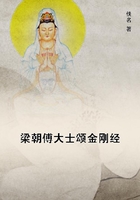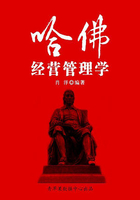As the prototype of Persephone, this goddess is one of much importance for comparative mythology, and there is a legend concerning her of considerable interest.The text is one of those found at Tel-el-Armana, in Egypt, and states that the gods once made a feast, and sent to Ere?-ki-gal, saying that, though they could go down to her, she could not ascend to them, and asking her to send a messenger to fetch away the food destined for her.This she did, and all the gods stood up to receive her messenger, except one, who seems to have withheld this token of respect.The messenger, when he returned, apparently related to Ere?-ki-gal what had happened, and angered thereat, she sent him back to the presence of the gods, asking for the delinquent to be delivered to her, that she might kill him.The gods then discussed the question of death with the messenger, and told him to take to his mistress the god who had not stood up in his presence.
When the gods were brought together, that the culprit might be recognised, one of them remained in the background, and on the messenger asking who it was who did not stand up, it was found to be Nerigal.This god was duly sent, but was not at all inclined to be submissive, for instead of killing him, as she had threatened, Ere?-ki-gal found herself seized by the hair and dragged from her throne, whilst the death-dealing god made ready to cut off her head."Do not kill me, my brother, let me speak to thee," she cried, and on his loosing his hold upon her hair, she continued, "thou shalt be my husband, and I will be thy wife--I will cause you to take dominion in the wide earth.I will place the tablet of wisdom in thine hand--thou shalt be lord, I will be lady." Nerigal thereupon took her, kissed her, and wiped away her tears, saying, "Whatever thou hast asked me for months past now receives assent."Ere?-ki-gal did not treat her rival in the affections of Tammuz so gently when I?tar descended to Hades in search of the "husband of her youth." According to the story, not only was I?tar deprived of her garments and ornaments, but by the orders of Ere?-ki-gal, Namtar smote her with disease in all her members.It was not until the gods intervened that I?tar was set free.The meaning of her name is "lady of the great region," a description which is supposed to apply to Hades, and of which a variant, Ere?-ki-gal, "lady of the great house,"occurs in the Hymns to Tammuz in the Manchester Museum.
Nergal.
This name is supposed to mean "lord of the great habitation," which would be a parallel to that of his spouse Ere?-ki-gal.He was the ruler of Hades, and at the same time god of war and of disease and pestilence.As warrior, he naturally fought on the side of those who worshipped him, as in the phrase which describes him as "the warrior, the fierce storm-flood overthrowing the land of the enemy." As pointed out by Jastrow, he differs from Nirig, who was also a god of war, in that he symbolises, as god of disease and death, the misery and destruction which accompany the strife of nations.It is in consequence of this side of his character that he appears also as god of fire, the destroying element, and Jensen says that Nerigal was god of the midday or of the summer sun, and therefore of all the misfortunes caused by an excess of his heat.
The chief centre of his worship was Cuthah (/Kut?/, Sumerian /Gudua/)near Babylon, now represented by the mounds of Tel Ibrahim.The identity with the Greek Aries and the Roman Mars is proved by the fact that his planet was /Mu?tabarr?-m?tanu/, "the death-spreader," which is probably the name of Mars in Semitic Babylonian.
Amurru.
Although this is not by any means a frequent name among the deities worshipped in Babylonia, it is worthy of notice on account of its bearing upon the date of the compilation of the tablet which has been taken as a basis of this list of gods.He was known as "Lord of the mountains," and his worship became very popular during the period of the dynasty to which Hammurabi belonged--say from 2200 to 1937 B.C., when Amurru was much combined with the names of men, and is found both on tablets and cylinder-seals.The ideographic manner of writing it is /Mar-tu/, a word that is used for /Amurru/, the land of the Amorites, which stood for the West in general.Amorites had entered Babylonia in considerable numbers during this period, so that there is but little doubt that his popularity was largely due to their influence, and the tablet containing these names was probably drawn up, or at least had the Semitic equivalents added, towards the beginning of that period.
Sin or Nannara.
The cult of the moon-god was one of the most popular in Babylonia, the chief seat of his worship being at Uru (now Muqayyar) the Biblical Ur of the Chaldees.The origin of the name Sin is unknown, but it is thought that it may be a corruption of Zu-ena, "knowledge-lord," as the compound ideograph expressing his name may be read and translated.
Besides this compound ideograph, the name of the god Sin was also expressed by the character for "30," provided with the prefix of divinity, an ideograph which is due to the thirty days of the month, and is thought to be of late date.With regard to Nannar, Jastrow explains it as being for Narnar, and renders it "light-producer." In a long hymn to this god he is described in many lines as "the lord, prince of the gods, who in heaven alone is supreme," and as "father Nannar." Among his other descriptive titles are "great Anu" (Sum./ana gale/, Semitic Bab./Anu rab?/)--another instance of the identification of two deities.He was also "lord of Ur," "lord of the temple Gi?nu-gala," "lord of the shining crown," etc.He is also said to be "the mighty steer whose horns are strong, whose limbs are perfect, who is bearded with a beard of lapis-stone,[*] who is filled with beauty and fullness (of splendour)."[*] Probably of the colour of lapis only, not made of the stone itself.















